ANALYSIS: By Alessandra Bajec
Last week, the UN Security Council endorsed President Donald Trump’s plan for Gaza, effectively installing American supervision over the Palestinian territory’s postwar future.
The resolution, which mandated a transitional administration and an international stabilisation force, faced sharp rejection from several Palestinian factions, who warned that it would undermine the national will.
The US roadmap sets out a future path to a Palestinian state, although its opaque wording and lack of concrete details on what it would look like cast doubt on any real commitment towards Palestinian self-determination.
While the UNSC contemplates a “possible” pathway to an independent Palestinian state, the Israeli government firmly rejected Palestinian statehood, calling it an “existential threat”.
The vote came amid American plans to split the Gaza Strip into two zones. The arrangement envisions a potentially indefinite division of the war-ravaged enclave along the Israeli-established Yellow Line, creating a “green zone” under Israeli military control — where reconstruction would begin — and a “red zone,” which would remain under de facto Hamas control.
Under the US-brokered ceasefire agreement reached in October, which Tel Aviv is repeatedly violating, Palestinians have been pushed into a small zone on the coastline that makes up less than half of Gaza, with Israeli forces controlling 53 to 58 percent of the Strip.
The Israeli army maintains roughly 40 active military positions in the area that falls beyond the Yellow Line, the invisible military demarcation boundary set during the first phase of the truce, where Israeli troops had to withdraw to.
Armed militias and clans
A mix of armed militias and clans, some supported by Israel, has emerged across the areas of Gaza now under Israeli command, challenging Hamas’s authority. Many Gazans, including those disillusioned with the group, are uneasy about the rise of these small, fragmented groups.
The majority of Gaza’s two million people are squeezed into a confined, suffocating land mass, living amidst rubble and makeshift tents, with only limited life-saving aid and no operational medical care.
“The first stage of the US plan has further fragmented Gaza and forced its surviving population into an even smaller territory, turning less than half of it into a concentration camp with no means of survival whatsoever,” US-Palestinian journalist and writer Ramzy Baroud told The New Arab.
Khaled Elgindy, a senior fellow at the Quincy Institute for Responsible Statecraft, made similar comments to TNA, describing Gaza as split between an indefinitely Israeli-ruled sector and a massive concentration camp.
“This is the reality that the Security Council has normalised,” he said, criticising the latest UN resolution.
For the Middle East expert, the so-called peace plan for Gaza has created new facts on the ground that are likely to become “permanent realities”, with the risk of a West Bank–style arrangement marked by extensive Israeli control.
The Trump administration is reportedly working to build “alternative safe communities” inside the part of Gaza under Israeli control. These communities are intended to provide temporary housing, schools, and hospitals until long-term reconstruction becomes possible.
The new residential sites are said to be part of a project aimed at resettling Gazans from areas under Hamas rule.
Gaza’s fragmentation entrenched
Critics caution that the initiative could entrench Gaza’s fragmentation, undermine Palestinian sovereignty, and amount to forced displacement.
Rami Abu Zubaydah, a Palestinian researcher on Israeli affairs, however, told the Palestinian Information Center that the American blueprint was unrealistic, since Gaza’s dense urban and familial fabric “is not land that can be partitioned”.
In fact, he added, Israel had not been able to fully control the enclave, either before its withdrawal or throughout the two years of conflict.
Baroud, born and raised in Gaza, explained that the project was a “far uglier” version of any previous Israeli policy toward Palestinians, in that people are now told that their political stance could determine whether the Strip returns to full-scale genocide or not.
“Israel’s new tactic is to divide Gaza and let those Palestinians who are not linked to the resistance trickle into the rebuilt zone,” hoping to set up an alternative governing structure there, he argued.
The analyst believes that Israel’s attempt to form “two Gazas” is unlikely to gain enough traction among people, affirming that their strong sense of unity has long made it almost impossible to manufacture divisions within Gaza’s society.
“I don’t think Israel can do this kind of social engineering in Gaza, no matter how desperate the situation”, he said.
Segmentation an old idea
Baroud stressed that Gaza’s segmentation is an old idea, pointing to former Israeli PM Ariel Sharon’s 1971 “five fingers” plan, which divided the Strip into separate areas through military zones and settlements.
But he also noted that Gazans resisted it for many years, which later pushed Sharon to withdraw Israeli settlers and troops from the coastal enclave in 2005.
Besides the emerging territorial divisions, Tel Aviv previously established the Netzarim Corridor, an east‑west military route through central Gaza that splits the Strip in two and gives Israel grip over major highways.
It also fortified the Philadelphi Corridor, a buffer zone along the Gaza‑Egypt border.
The Yellow Line, originally intended as a temporary military arrangement marking Israel’s first withdrawal under the ceasefire, is now being cemented despite plans to deploy an international stabilisation force and reduce the Israeli army’s direct presence in the territory after phase one.
Trump’s 20-point plan has essentially created a geographical division in Gaza that risks becoming permanent.
Many Palestinians fear the outcome will be a de facto partition between the Israeli-occupied east, with some reconstruction concentrated there, and the Hamas-controlled west, where most of the population remains crowded in devastated areas with little rebuilding.
Gradual Israeli pull back
According to the proposal, Israel would gradually pull back to a “security perimeter” but retain military control over this buffer zone, overseen by an international administrative body.
Critics warn this would perpetuate Israel’s effective control over much of the territory and confine Palestinians to a smaller, more restricted Gaza than before the war.
Meanwhile, negotiations for the second phase of the truce remain stalled as Hamas still holds the remains of three hostages. An extended standstill would only prolong Palestinian suffering and expose civilians to further violence.
Israeli forces have continued to carry out near-daily airstrikes, artillery shelling, and demolitions since the truce began on 10 October. In just the first month, Israel violated the ceasefire nearly 500 times, killing more than 340 Palestinians and injuring hundreds more, with some of the worst violence occurring near or past the Yellow Line.
“Each passing day makes the ceasefire look more like a farce,” Elgindy said, slamming the Security Council’s silence in the face of Israel’s daily ceasefire violations.
Aid flows restricted
Israeli authorities have also continued to restrict aid flows to Gaza more than a month into the ceasefire, leaving nearly 1.5 million people without emergency shelter and hundreds of thousands living in tents without basic services.
UN data shows that just over 100 trucks of humanitarian assistance are entering the besieged enclave each day, far below the 600 trucks per day agreed under the October ceasefire deal.
Elgindy added that if the world keeps pretending the war is over while bombing continues, aid is still blocked, and reconstruction is stalled, the truce will become untenable, and the situation will erupt again.
“It’s only a matter of time before we see a Palestinian response, giving Israel a pretext to resume a full-scale assault,” he said.
Alessandra Bajec is a freelance journalist currently based in Tunis. This article was first published by The New Arab.
This post was originally published on Asia Pacific Report.
 ELIMINATED: 9 additional terrorists were located in underground terror infrastructure in eastern Rafah
ELIMINATED: 9 additional terrorists were located in underground terror infrastructure in eastern Rafah




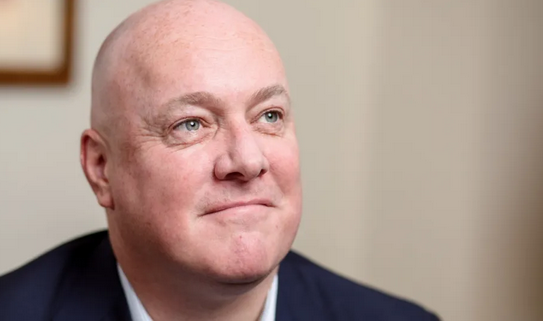








 for Jamaica’s Bobsled Team in Whistler, Canada!
for Jamaica’s Bobsled Team in Whistler, Canada!

 Ambassador to the
Ambassador to the 
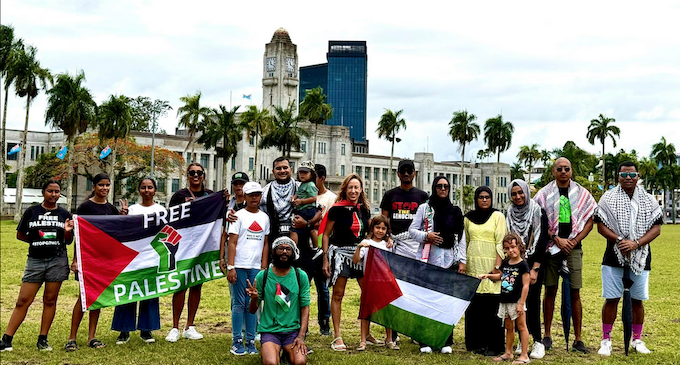
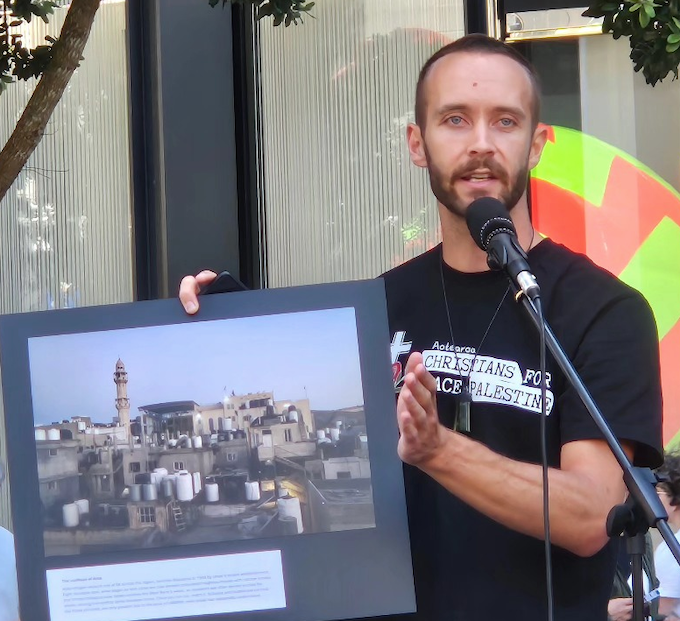
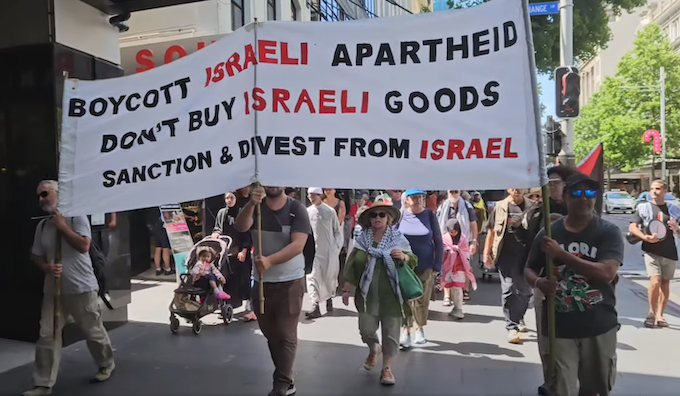
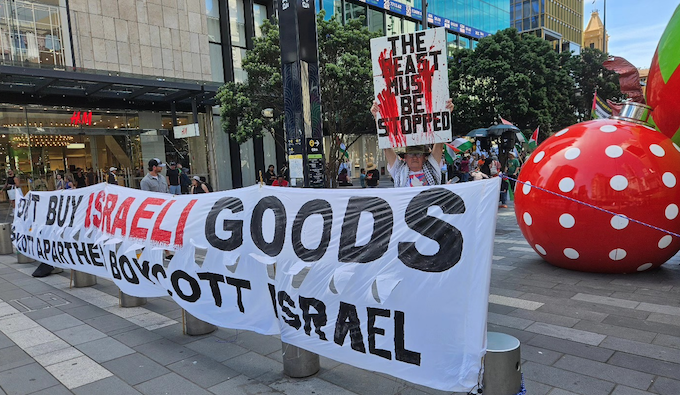





 (@Simo7809957085)
(@Simo7809957085) 

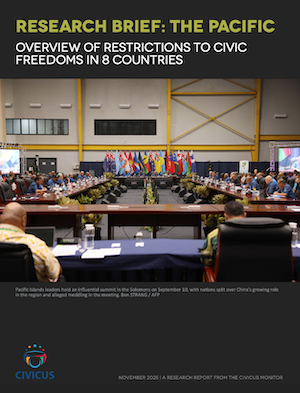
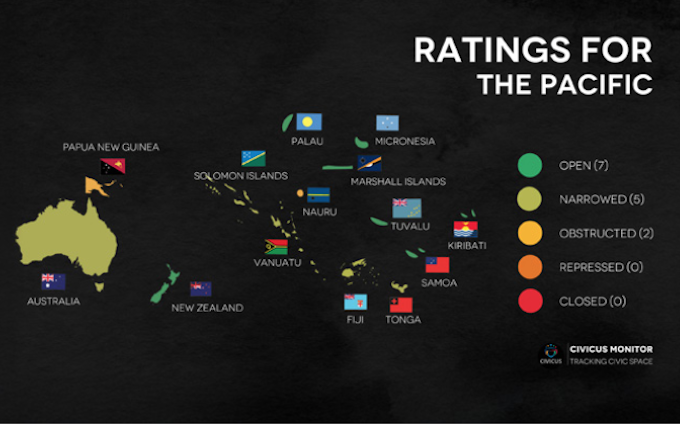
 (@mmpadellan)
(@mmpadellan)  MASSIVE JOBS DISASTER FOR TRUMP
MASSIVE JOBS DISASTER FOR TRUMP